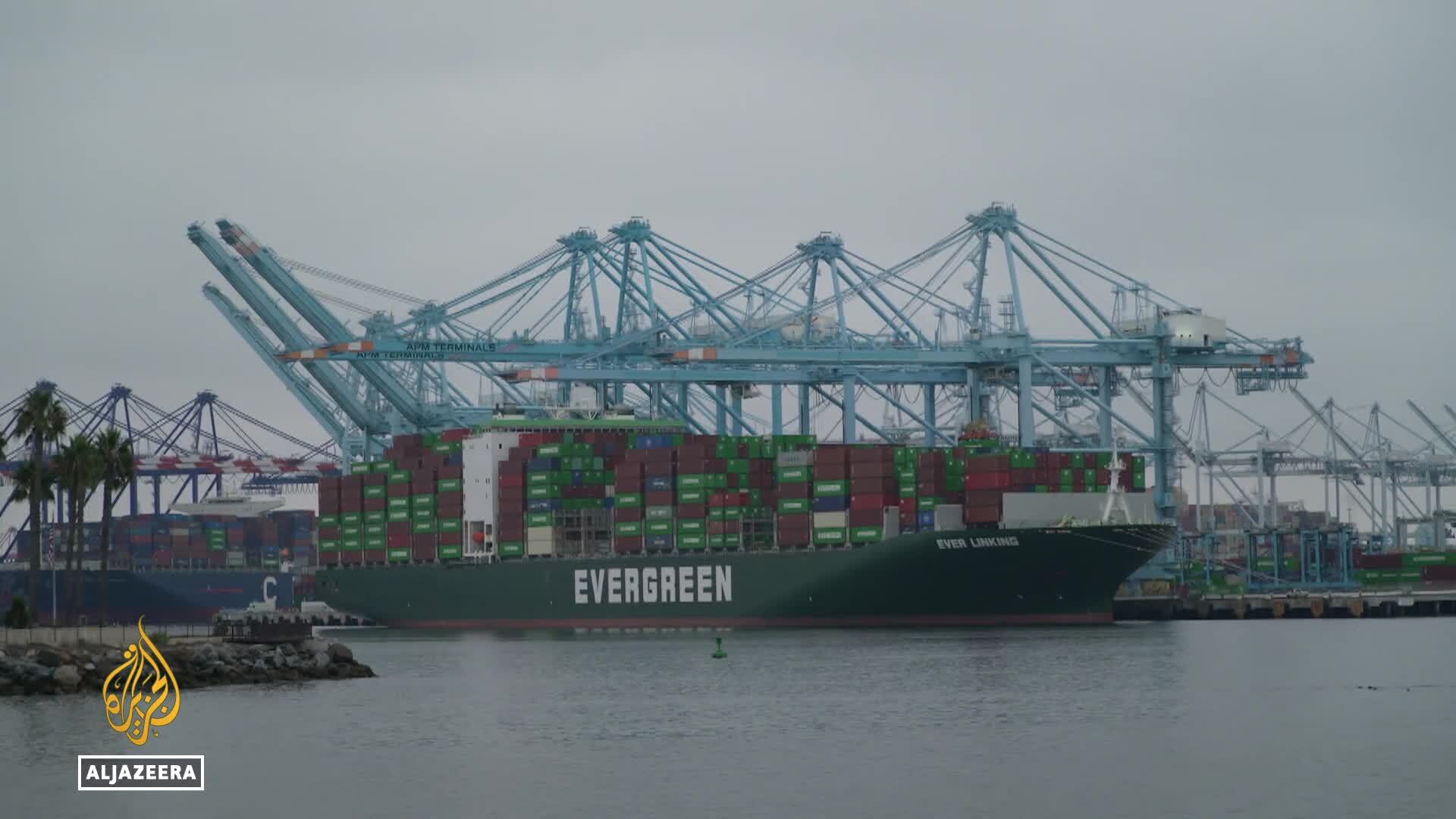The United States has imposed stiff tariffs on imports from Mexico, Canada and China, prompting swift retaliatory measures from the country’s North American neighbours.
On Saturday, US President Donald Trump enacted three separate executive orders, one for each country: 25% for imported goods from Canada and Mexico and 10% for all imported goods from China.
But energy imported from Canada, including oil, natural gas and electricity, would be taxed at a 10 percent rate.
Trump argued that the tariffs were necessary to “protect Americans” and promised to carry on them until a “national emergency” in the US is over the use of fentanyl and illegal immigration.
Retaliatory tariffs were immediately imposed by Mexico’s president Claudia Sheinbaum, and Canadian Prime Minister Justin Trudeau announced that his nation would impose the same 25% tariffs on US imports totaling $155 billion.
China didn’t immediately respond.
Al Jazeera’s Kristen Saloomey, reporting from the US city of Detroit, said Trump’s moves have raised concerns on both sides of the border.
Americans in Detroit, where I am, have expressed concern about rising prices, and Canadians have been very concerned about this. Additionally, economists are advising consumers that these tariffs could lead to a trade war, which could lead to price increases, and possibly a recession for Canada, she added.
Steep tariffs
To support the tariffs, which give the president sweeping authority to impose sanctions on situations of crisis, Trump declared a national emergency under the International Emergency Economic Powers Act and the National Emergencies Act.
Trump repeatedly threatened in the presidential campaign for 2024 and since taking office, but the new duties defy economist warnings that a new trade war with the US’s top trading partners would cause prices for both consumers and businesses.
Tariff collections are set to begin at 12: 01am EST (05: 01 GMT) on Tuesday, according to Trump’s written order. However, imports that were loaded onto a ship or onto their final mode of transportation before entering the US on or before Saturday at 12:01 am would not be subject to duties.
The tariffs would remain in effect until the crisis was resolved, according to a White House fact sheet, but it provided no information about what the three countries would need to do to obtain a reprieve.
US officials, meanwhile, said that there would be no exclusions from the tariffs and if Canada, Mexico or China retaliated against US exports, Trump would likely increase the duties.
They said that Canada, specifically, would no longer be allowed the “de minimis” US duty exemption for small shipments under $800. According to the officials, Canada and Mexico have become a conduit for fentanyl and its precursor chemicals entering the US via small packages that are rarely inspected by customs agents.
Real consequences
Trudeau, Canada’s prime minister, said that Canadian duties on $30bn in trade in US alcohol and fruit would take effect Tuesday, when the US tariffs go into effect.
He addressed Canadians with a consumer-targeted message before moving on.
He continued, “It will have real consequences for you, the American people,” adding that it would lead to higher prices for groceries and other items.
Trudeau warned in French that it might bring about “dark times” for many people, saying, “The actions taken today by the White House split us apart rather than bringing us together.” He urged Canadians to “choose Canadian products and services over American ones” (p.
Sheinbaum, the Mexican president, responded to Trump’s announcement in a post on X, saying she had instructed her economy secretary to implement a response that includes retaliatory tariffs and other measures in defence of Mexico’s interests.
“We categorically reject the White House’s slander that the Mexican government has alliances with criminal organizations, as well as any intention of meddling in our territory”, Sheinbaum wrote.
The United States government and its organizations could combat the grave fentanyl consumption in their nation by preventing the sale of drugs on the streets of their major cities and the laundering of money by this illegal activity, which has caused such harm to its citizens.
Al Jazeera’s Julia Galiano, reporting from Mexico City, said the trade war would hit Mexico hard.
“Let’s remember that 80 percent of Mexico’s exports go to the US. The country is by far Mexico’s largest trading partner. Experts are telling us that the effects are going to be felt essentially right away, initially with prices going up]and] secondly, with a rise in inflation”, she said.
In the US,  , Republicans welcomed Trump’s move, while industry groups and Democrats issued stark warnings about the impact on prices.
Jake Colvin, president of the National Foreign Trade Council (NFTC), feared that Trump’s action would “adjust the costs of everything from avocados to cars” and called on the US, Canada, and Mexico to find a quick solution to stop the price increase.
Colvin said in a statement that “our focus should be on working with Canada and Mexico to gain a competitive advantage and aid American companies’ ability to export to global markets.”
Democrats were quick to claim that Trump’s return as president would cause inflation in the near future.
“You’re worried about grocery prices. Senate Democratic Leader Chuck Schumer of New York posted on X on Monday. “Don’s raising prices with his tariffs.
Source: Aljazeera

Leave a Reply